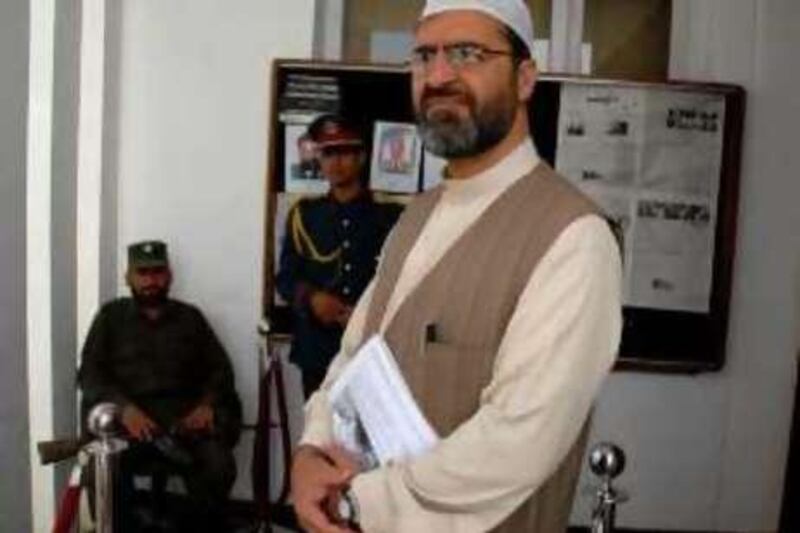KABUL // It was early one morning this summer when Abdul Wali Ahmadzai began to understand the true strength of the Taliban in his province. As the senator for Logar travelled to a meeting, eight men armed with weapons including Kalashnikovs and rocket-propelled grenade launchers stopped his convoy on a dirt road. He was held hostage for more than two months and would come away having witnessed a reality some insist does not exist.
"The important point is that the people support the Taliban. This is the main problem: now the people do not like the government and they support the Taliban," he said in an interview. Logar province lies on Kabul's southern border and after years of being portrayed as relatively safe, it has been thrust into the limelight by a number of brazen insurgent attacks. Mr Ahmadzai's kidnapping came in July, but the warning signs were around for a while. By the time he joined the senate as part of Afghanistan's 2005 parliamentary elections, he was already noticing an alarming trend. "When Hamid Karzai became president he made good relationships with commanders in the north and gave them lots of money and positions. But he did nothing for the south and east," he said. "I told [the government] please be careful because if the Taliban come back to Logar just once, it will be very difficult to stop them. But they didn't care, they didn't listen. Now you can see everyone is upset with the government and they have stopped talking and started fighting." Mr Ahmadzai, 40, had been an aid worker and a pharmacist before opting - reluctantly, he says - for a career in politics. Despite the dangers involved in his new job, he travelled twice a week from Kabul to his home province until that fateful day in July. He stayed in Logar on the eve of his kidnapping. Then, accompanied by three bodyguards and two cars full of elders, he set out the next morning for a meeting with local officials. At 8am the gunmen were waiting for him, their faces covered. He refused to put up a fight. "The Taliban have good intelligence. They know who is going out from the upper and lower houses of parliament, where they are going and when they are going," he said. He was soon handed over to a second group of insurgents. Over the two months he would be held at five or six different locations, always moving under the shelter of darkness. He stayed in empty homes and on one occasion was detained for 15 days near the office of a district governor. "The government's control was just on the main road and the places surrounded by walls and wire," he said. With him throughout was his driver, who had also been abducted. In the second half of their ordeal they were transferred to an area bordering the provinces of Ghazni, Paktia and Logar. Mr Ahmadzai claims hundreds of Taliban were living openly there, holding public meetings, mingling with the population and using police vehicles. When both men were eventually released, the insurgents said it was part of an exchange deal in which three militants were freed from prison. The senator denies this, but feels no animosity towards the men who took him hostage. For Mr Ahmadzai the experience has simply confirmed what he had suspected two years ago, when he first noticed the Taliban re-emerging. Now with his seven children in Kabul, he is afraid to return to Logar and doubtful that he will stand in the next parliamentary elections scheduled for 2010. "We represent the people, they chose us, and we can solve their problems. But when we talk to the president he doesn't listen. One Talib even came and said he voted for me, so I represent their side as well," he said. "If the situation continues like this, I don't want to stand again. There are two reasons: one is security, the other is that I can't work for my people. And the elections will not be fair because there is no one who can [safely] vote in the south and east." Mr Ahmadzai said he was angry with the government, not the insurgents. "I have a good from memory from those Taliban because from the beginning until the end they treated me like a guest," he said. csands@thenational.ae





